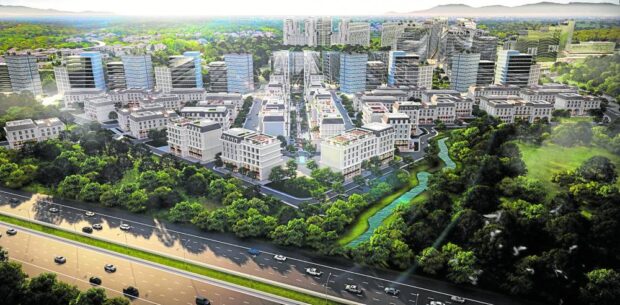
Megaworld’s Northwin Global City is envisioned to be the first metropolitan hub for business and lifestyle in the province of Bulacan.
The province of Bulacan—a cradle of Philippine history and culture—has become an attractive investment destination in recent years as major infrastructure projects highlight the potential of the province.
Once a fertile land drained by a network of rivers and streams, Bulacan became a land sprawling with green orchards, vegetables and flowering plants during the Spanish period after fishermen and farmers—the first settlers in this province—cultivated the fields. Its name was derived from the Tagalog word “bulak” which means cotton.
Thriving industries
Today, Bulacan has a number of thriving industries including farming, fishing, food processing, garment manufacturing and handicrafts.
Regarded as the gateway to the north, Bulacan’s proximity to Metro Manila allows it to benefit from the spillover growth from the capital region, while the government’s aggressive infrastructure spending will continue to have a positive impact on the province. Within Bulacan alone, there are also several key infrastructure projects that can be expected including the much awaited New Manila International Airport, which is set to further improve the province’s connectivity, accessibility and viability.
Further increasing Bulacan’s attractiveness as a destination would be the availability of skilled talent pool and abundant natural resources, and the ease of doing business in this province.
In March 2022, the P198-million Meycauayan-Marilao East Service Road was formally opened to the public. (NLEX)
In the 2022 Cities and Municipalities Competitiveness Index (CMCI), it retained its ranking as the 10th most competitive province in the country. Bulacan was also named Most Business-Friendly Local Government Unit in the provincial level by the Philippine Chamber of Commerce and Industry (PCCI) in October 2022.
Growth and transformation
The municipalities of Bocaue and Marilao, in particular, demonstrate Bulacan’s growth and transformation as an investment destination.
Among the 512 first and second class municipalities, Marilao landed on the 26th spot in the 2022 CMCI, while Bocaue ranked 182nd. Under the economic dynamism pillar, Marilao ranked 14th while Bocaue ranked 58th. In the infrastructure pillar, Marilao and Bocaue ranked 23rd and 56th, respectively.
In March 2022, the P198-million Meycauayan-Marilao East Service Road was formally opened to the public. The two-lane, 190-meter service road serves as an alternative route to and from Marilao and Meycauayan.
Another priority project of the Department of Public Works and Highways (DPWH) is the construction of Bocaue-Balagtas Diversion Road which seeks to decongest traffic in the area. The Ciudad de Victoria project, implemented by the DPWH, was opened in Bocaue in 2021. The 5.14-kilometer project included the construction of a North Luzon Expressway (NLEX) interchange and a bypass road.
With these public projects that aim to address infrastructure gaps in the province, Bulacan has attracted the country’s biggest developers.
One of the stations of the highly anticipated Manila-Clark Railway Project will be hosted in Megaworld Corp.’s P98 billion Northwin Global City—a “global business district” in an 85-ha township spanning Marilao and Bocaue. The development is envisioned to be the first metropolitan hub for business and lifestyle in the province of Bulacan.
Sources: Inquirer Archives, psa.gov.ph, cmci.dti.gov.ph, pna.gov.ph, dpwh.gov.ph